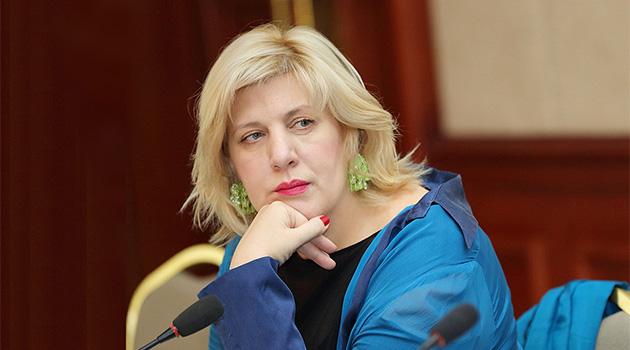Council of Europe's Commissioner for Human Rights warns that Romani Ukrainians are being discriminated against when seeking temporary protection

On the occasion of International Romani Day, the Council of Europe's Commissioner for Human Rights, Dunja Mijatović, warned all member states that they must ensure that the history of Romani people will not be forgotten and that it will be appreciated and taught to all of society. She said the complex history of Romani peple in Europe is full of dark moments such as slavery, the Holocaust, and pogroms.
“History instruction is one of the most important instruments for eliminating prejudice. To combat and prevent discrimination against Romani people we must achieve the acknowledgement, comprehension and commemoration of their history while ampliying the celebration of their culture,” Mijatović in a press release sent to Romea.cz.
The Commissioner for Human Rights said Romani people still experience the effect of omnipresent discrimination in all areas of their lives, from exclusion and segregation in education and housing to anti-Romani rhetoric in public on a daily basis, frequently from the mouths of public officials and the media. “The ongoing violations of Romani people’s human rights are instigated by the antigypsyism spiral today,” she said.
A recent example is the discrimination Romani people have been facing as they flee Russia’s war on Ukraine. Other cases, according to Mijatović, occur during crises and natural catastrophes.
For example, the COVID-19 pandemic revealed yet another rise in hate speech targeting Romani communities across Europe as well as discrimination against them when accessing basic services. “Educating people about the history of the Roma plays a unique role in teaching them how to criticially reflect on the past and the present and in strengthening tolerance and understanding. It also facilitates meaningful involvement in preventing prejudices against Roma. Knowledge of the history of the Roma can aid policy designers and society as a whole with predicting behavior and better addressing the barriers that prevent Romani people from fully exercising their rights today,” Mijatović said.
It is also necessary to lift up the contributions to the culture and history of Europe made by Romani people. The old myths and deeply-rooted prejudices must be replaced with such knowledge so Europeans can create a common story based on respect for their common heritage and cultural diversity.